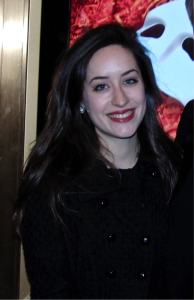Victims of human trafficking are often marginalized by society even prior to their victimization. Before becoming victims of labor or sex trafficking, these men and women may be on the outskirts of society, making them a target for traffickers. Some shared commonalities of the victims include: a history of abuse, poverty, mental health issues, limited education, and lack of familial support.
In particular, children who have run away from home or minors without family support are groups specifically targeted by human traffickers for both sex and labor. Unable to protect themselves without family or other support systems, young people are victimized more frequently as they are often easier to manipulate than adults, according to Omar Martinez, an attorney and M.P.H. at Columbia University. According to a study conducted by the United Nations Office on Drugs and Crime, children are targeted for sex trafficking in child pornography or prostitution. Those who are not subjected to sex trafficking are often victims of forced labor. Children who escape disruptive homes by running away often lack support systems, education, and monetary ability to gain safe housing and care, leaving them vulnerable to traffickers.
Some form of family disruption may cause minors to leave home and seek alternative means that often leads to victimization. A history of childhood abuse and parental substance addiction often leads minors into prostitution or forced labor. According to the Center for Impact Research, prostituted minors are more likely to have come from a home with a history of childhood sexual abuse, had a parent or guardian addicted to drugs, seen a parent abused by his or her spouse, or suffered the loss of a parent through death, divorce, or abandonment.
Members of the LGBT community are also human trafficking victims who have been marginalized by society prior to human trafficking victimization. In particular, the sex trafficking of LGBT men and women is “commonly overlooked,” and is underreported in the United States, making it even more difficult to track. According to the Polaris Project, a non-profit organization designed to combat human trafficking, from a young age, individuals who associate as LGBT face higher rates of discrimination, and therefore may be at a higher risk to become victims of trafficking based on this discrimination. Frequently, these victims can be bullied at school, face family rejection, and suffer economic instability subject to the cultural norms of exclusion in some communities. It is from this community rejection that victims often turn to enter “high-risk, poorly regulated employment” that can include unpaid and unfair labor or forced prostitution.
This marginalization has further detrimental effects on victims as they seek, or fail to seek, adequate support. Those penalized for their sexual orientation, or stigmatized based on lack of education, family support, or history of abuse are less likely to self-identify as victims of trafficking or report the exploitation to authorities. Victims of sex trafficking are at a far higher rate of contracting sexually transmitted diseases, further preventing some victims from coming forward to seek medical help based on embarrassment or fear.
As a society chooses to outcast a specific group based on race, creed, sexual orientation, or gender, the effects of that marginalization are far more serious than initially expected. This first exclusion or discrimination is one that can lead to a person becoming an easier target for traffickers to exploit. Should the victims escape being trafficked, they are often shunned by society and viewed as criminals – “prostitutes” – which may also prevent them from seeking or gaining help necessary to recover from the trauma of being exploited.
Effectively eradicating discrimination of victims of human and sex trafficking in the community can begin in schools, offices, churches, and in the community in general. For those who think there is nothing to be done on an individual level to combat human trafficking, the struggle to end the stigma they face in society is a small but important way to begin.
Sarah Burke is currently a first-year law student at the Villanova University Charles Widger School of Law. Sarah is from Providence, Rhode Island and received her degree in English and Philosophy from The Catholic University of America. After graduating from law school, Sarah hopes to pursue a career in litigation or art law. Her dream job is to become general counsel at the Smithsonian.



